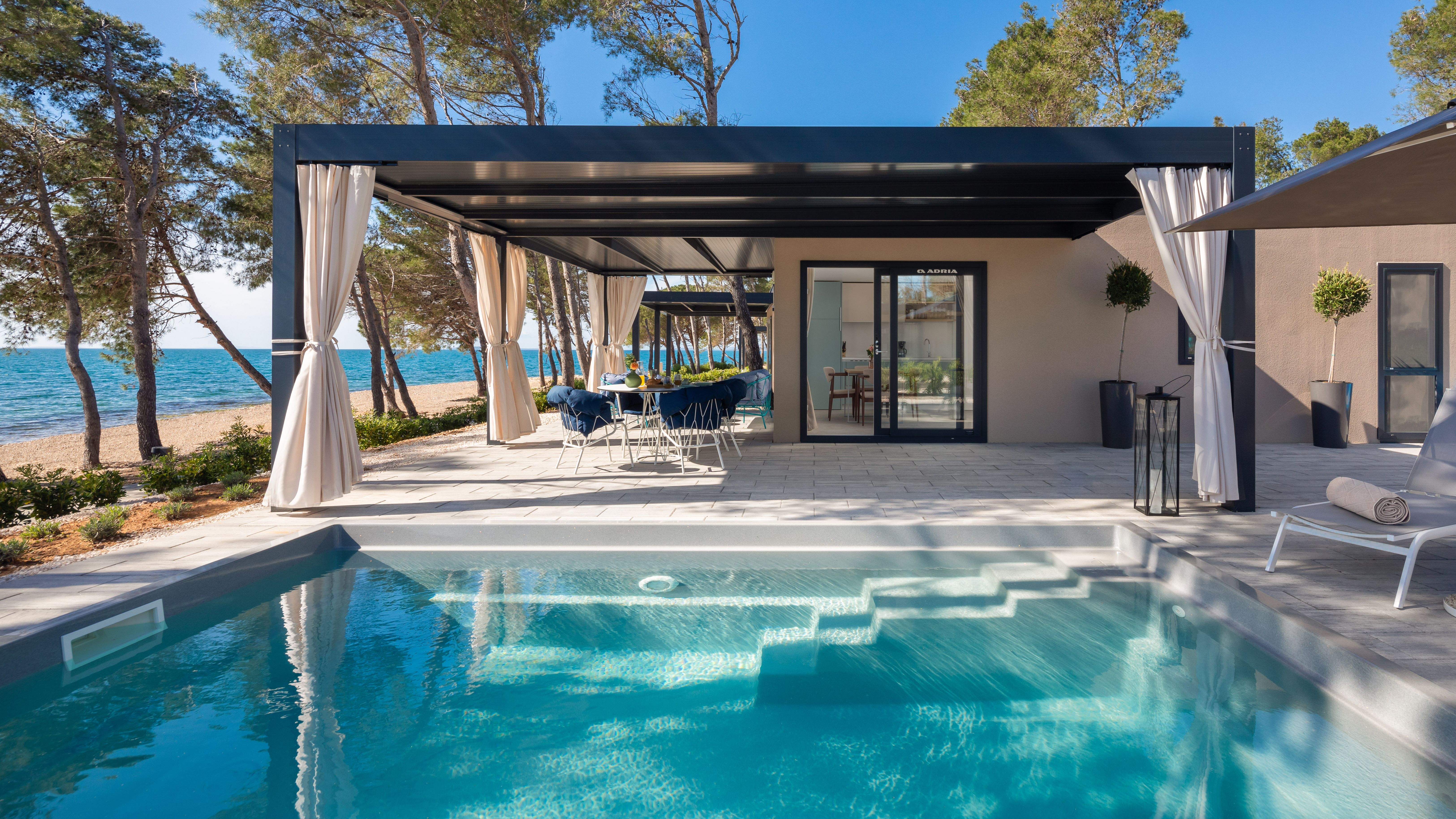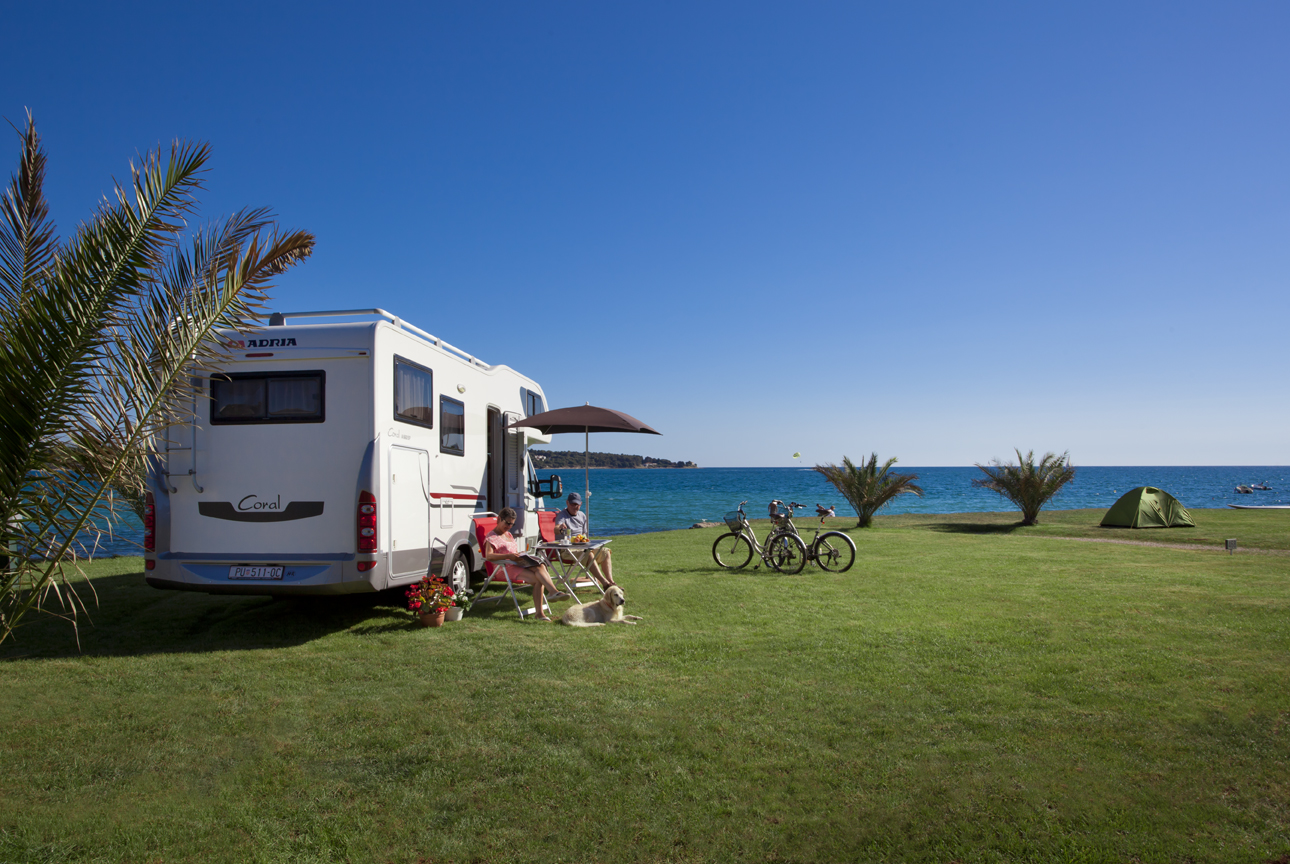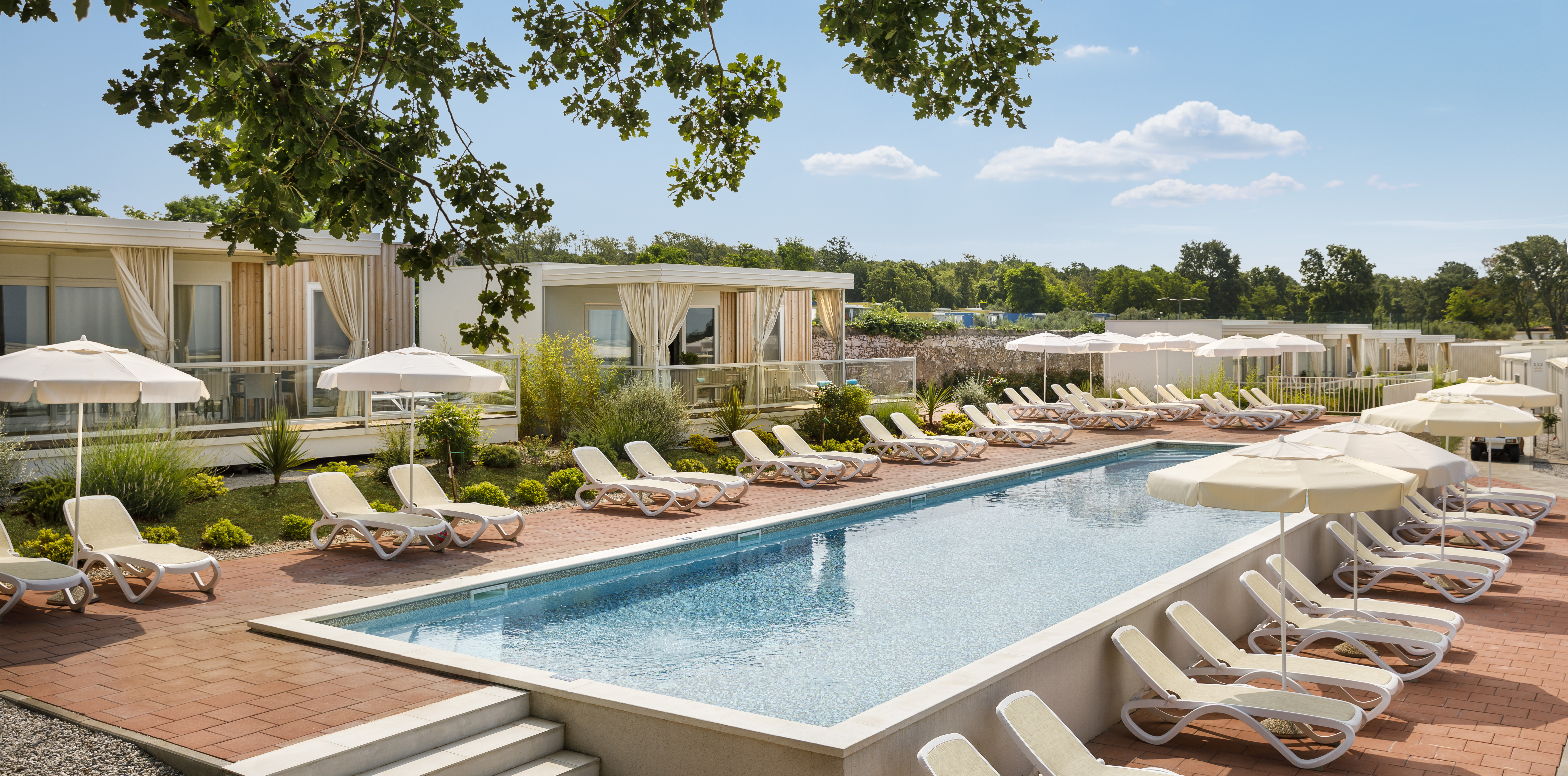.jpg)
- Ime i prezime/ Name and surname: Matija Mandić
- Ustanova/ Organization: KING ICT d.o.o.
- Država/ Country: Hrvatska
- O predavaču/ A few sentences about the speaker:
Matija Mandić je diplomirani inženjer elektrotehnike i magistar sigurnosnih studija s više od 20 godina iskustva u industriji sigurnosti. Zadnjih 18 godina obnaša funkciju direktora sektora tehničke zaštite i pasivnih mrežnih rješenja u tvrtki KING ICT. U svojoj dugogodišnjoj karijeri projektirao je te tehnički i komercijalno vodio neke od najsloženijih projekata u Hrvatskoj i Regiji iz područja primjene naprednih tehnologija za sustave pametnih gradova, ITS rješenja, prometne analitičke sustave, sustave iz područja prometa i veza (autoceste, aerodromi), nadzora državne granice, elektroenergetskog sektora, projekte u zgradarstvu (napredni smart home koncepti) kao i mnogih drugih projekata iz različitih industrijskih vertikala. Sudjelovao je u istraživanju i implementaciji velikog broja razvojnih projekata iz područja sigurnosti i automatizacije (sustav centralnog nadzora i naprednog upravljanja incidentima, sustav pametnog doma, uređaj za procesiranje podataka s različitih tipova IoT senzora, mrežni alarmni komunikator…)
Matija Mandić is a graduate electrical engineer and holds a master's degree in security studies, with over 20 years of experience in the security industry. For the past 18 years, he has served as the Director of the Technical Protection and Passive Network Solutions Department at KING ICT. Throughout his long-standing career, he has designed, as well as technically and commercially led, some of the most complex projects in Croatia and the region, focusing on the application of advanced technologies for smart city systems, ITS solutions, traffic analysis systems, projects in the transport and communications sectors (highways, airports), state border surveillance, the power sector, building projects (advanced smart home concepts), and many other projects across various industrial verticals. He has participated in the research and implementation of numerous development projects in the fields of security and automation (central monitoring and advanced incident management systems, smart home systems, data processing devices for various types of IoT sensors, network alarm communicators, etc.).
Tema predavanja/ Lecture topic:
Pametno kampiranje: Zeleni odmor u ritmu pametnog grada
Kampiranje u 21. stoljeću dobiva novu dimenziju kroz integraciju s tehnologijama pametnih gradova. Ovaj rad istražuje kako koncept pametnog grada, temeljen na održivosti, sigurnosti, digitalnoj povezanosti i učinkovitom upravljanju resursima, može unaprijediti iskustvo kampiranja. Prikazat će se primjeri zelenih kampova koji su povezani s urbanom infrastrukturom, koriste različite IoT tehnologije, pametne energetske mreže, sustave za upravljanje otpadom te digitalna rješenja za sigurnost i komfor posjetitelja. Cilj je pokazati kako spoj tehnologije i ekologije može omogućiti održive, pametne odmore koji poštuju prirodu, ali su istovremeno u skladu s ritmom suvremenog društva.
Smart Camping: A Green Getaway in the Rhythm of a Smart City
Camping in the 21st century is gaining a new dimension through integration with smart city technologies. This study explores how the concept of a smart city - based on sustainability, safety, digital connectivity, and efficient resource management - can enhance the camping experience. We will showcase examples of eco-friendly campsites connected to urban infrastructure, utilizing various IoT technologies, smart energy grids, waste management systems, and digital solutions for visitor safety and comfort. The goal is to demonstrate how the combination of technology and ecology can enable sustainable, smart holidays that respect nature while staying in tune with the pace of modern society.
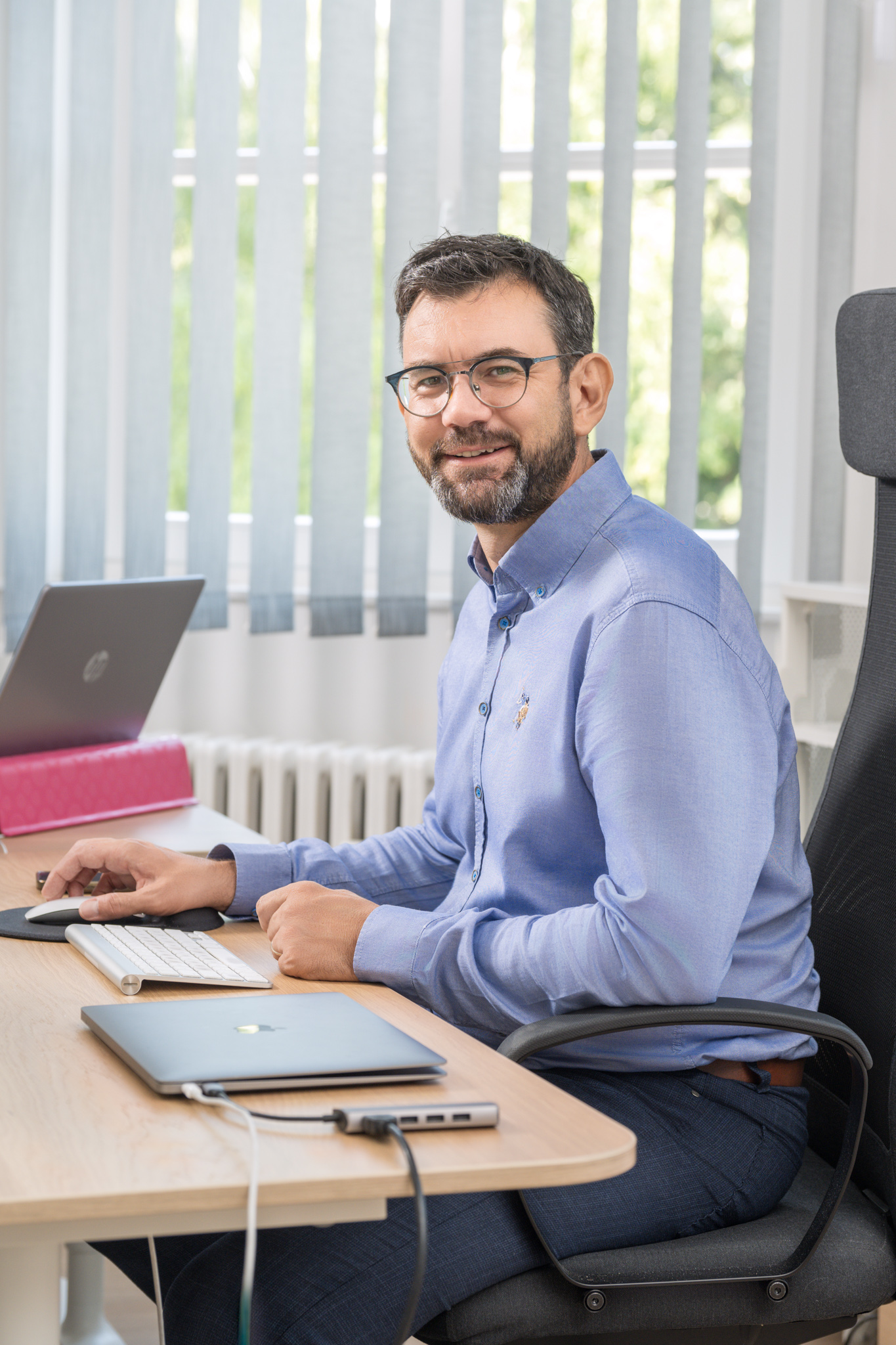
- Ime i prezime/ Name and surname: Mario Protulipac
- Ustanova/ Organization: Okviri znanja d.o.o.
- Država/ Country: Hrvatska
- O predavaču/ A few sentences about the speaker:
Mario Protulipac magistrirao je poslovnu ekonomiju sa specijalizacijom iz upravljanja projektima, a trenutno pohađa doktorski studij iz istog područja na Sveučilištu Alma Mater Europaea u Mariboru. Suvlasnik je konzultantske tvrtke Okviri znanja i ima više od 18 godina profesionalnog iskustva u razvoju i vođenju projekata, posebno u području istraživanja, razvoja, inovacija i održivog razvoja. Certificirani je trener za PRiSM metodologiju održivog upravljanja projektima te je koautor verificiranog programa obrazovanja za održivo upravljanje projektima. Mario je kroz svoju karijeru vodio neke od najkompleksnijih projekata u Hrvatskoj, ukupne vrijednosti portfelja veće od 150 milijuna eura. Aktivno surađuje i na međunarodnim projektima, posebno onima financiranim iz EU fondova, te redovito sudjeluje u regionalnim i europskim inicijativama za promicanje održivosti kroz projekte. Kombinacijom praktičnog iskustva, akademskog rada i edukacijskog angažmana, Mario sustavno promiče ulogu projekata kao alata za postizanje ciljeva održivog razvoja na lokalnoj i međunarodnoj razini.
Mario Protulipac holds a Master's degree in Business Economics with a specialization in Project Management and is currently pursuing a PhD in the same field at Alma Mater Europaea University in Maribor. He is the co-owner of the consulting company Okviri znanja and has over 18 years of professional experience in project development and management, especially in the fields of research, development, innovation, and sustainable development. He is a certified trainer for the PRiSM methodology of sustainable project management and co-author of an accredited educational program on sustainable project management. Throughout his career, Mario has led some of the most complex projects in Croatia, with a total portfolio value exceeding 150 million euros. He actively collaborates on international projects, particularly those funded by EU programs, and regularly participates in regional and European initiatives promoting sustainability through projects. Through a combination of practical experience, academic work, and educational engagement, Mario systematically promotes the role of projects as tools for achieving sustainable development goals at both local and international levels.
Tema predavanja/Lecture topic:
Destinacije bez održivog planiranja plaćaju veću cijenu: Uloga projekata u postizanju ciljeva održivog urbanog razvoja
Klimatske promjene već danas uzrokuju sve češće poplave, toplinske valove, zagađenje zraka i probleme s infrastrukturom. Destinacije koji nemaju jasan plan kako se nositi s tim izazovima dugoročno plaćaju veću cijenu. Ovaj rad govori o tome kako projekti mogu pomoći destinacijama da postanu održivije i otpornije. Objasnit će se razlika između održivosti kroz projekte (kako projekt doprinosi okolišu i društvu) i održivosti na projektima (kako se projekt sam provodi na održiv način). Kroz primjer Green City Action Plana (GCAP) za Karlovac, izrađenog po metodologiji EBRD-a, pokazat će se kako strateški pristup i uključivanje lokalne zajednice i stručnjaka mogu stvoriti konkretne promjene. GCAP je važan korak prema sustavnom planiranju održivog razvoja i dokaz da projekti imaju veću snagu kada su dio šire vizije destinacije.
Destinations without sustainable planning pay a higher price: the role of projects in achieving sustainable urban development goals
Climate change is already causing more frequent floods, heatwaves, air pollution, and infrastructure issues. Destinations that lack a clear plan to address these challenges end up paying a higher long-term price. This study explores how projects can support destinations in becoming more sustainable and resilient. It will explain the difference between sustainability through projects (how a project contributes to the environment and society) and sustainability in projects (how the project itself is implemented in a sustainable manner). Using the example of the Green City Action Plan (GCAP) for Karlovac, developed following the EBRD methodology, the study will show how a strategic approach and the involvement of local communities and experts can lead to tangible change. GCAP is an important step towards systematic sustainable development planning — and a clear proof that projects are more powerful when they are part of a broader destination vision.
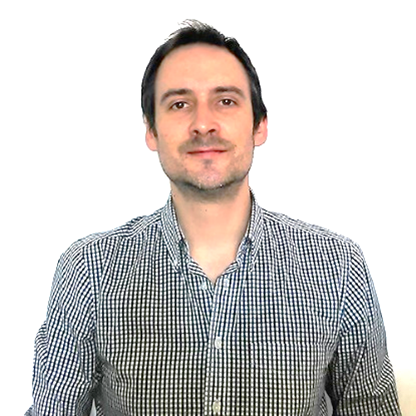
- Ime i prezime/ Name and surname: Márcio Ribeiro Martins
- Ustanova/ Organization: Instituto Politécnico de Bragança, Portugal
- Država/ Country: Portugal
- O predavaču/ A few sentences about the speaker:
izv. prof. dr. sc. Márcio Ribeiro Martins izvanredni je profesor sa doktoratom iz turizma, magisterija iz upravljanja opasnostima u prirodi i diplomu iz geografije. Zaposlen je na School of Communication, Administration and Tourism, Instituto Politécnico de Bragança (EsACT-IPB). Njegova istraživanja usmjerena su na održivi turizam, prostorno-vremenska ponašanja turista te tehnologije praćenja turista. Istraživač je u Transdisciplinarnom istraživačkom centru za obrazovanje i razvoj (CITeD - IPB) i suradnički član Centra za istraživanje, razvoj i inovacije u turizmu (CITUR) i UNIAG - IPB. Uz brojne publikacije, autor je i urednik knjiga, poglavlja u knjigama i članaka u međunarodnim znanstvenim časopisima.
Márcio Ribeiro Martins holds a PhD in Tourism, a Master’s in Natural Hazards Management, and a degree in Geography. He is an Adjunct Professor in Tourism at the Instituto Politécnico de Bragança (School of Administration, Communication, and Tourism). His research focuses on sustainable tourism, visitors’ space-time behaviour, and tracking technologies. He is a researcher at the Transdisciplinary Research Centre in Education and Development (CITeD - IPB) and a collaborating member of the Centre for Tourism Research, Development and Innovation (CITUR) and the Applied Management Research Unit (UNIAG - IPB). With numerous publications, he has authored and edited books, book chapters, and articles in international journals.
Tema predavanja/Lecture topic:
Flickr geo označene fotografije i ponašanje posjetitelja u prostoru i vremenu: studija slučaja s Plitvičkih jezera (2005. – 2025.)
Ovaj rad istražuje prostorno-vremensko ponašanje posjetitelja Nacionalnog parka Plitvička jezera analizom fotografskih meta podataka s Flickra u razdoblju od 2005. do 2025. godine. Iako je širi cilj predstaviti metodologije za praćenje kretanja posjetitelja, ovo istraživanje pokazuje kako alati otvorenog koda i podaci koje korisnici generiraju mogu podržati održivo upravljanje zaštićenim područjima. Ukupno 36.899 geo označenih fotografija koje je postavilo 7.432 korisnika obrađeno je pomoću Python i QGIS softvera kako bi se ispitali sezonski obrasci posjeta, ponavljajuća ponašanja i interakcije sa zaštićenim zonama. Rezultati pokazuju da se 26,4% korisnika vratilo u park u više različitih dana, 71,3% fotografija snimljeno je tijekom popodnevnih sati, a 44,6% tijekom ljetne sezone. Identifikacija popularnih mjesta za posjetitelje omogućila je dublje razumijevanje prostornog pritiska i popularnosti mjesta. Komparativna analiza vremenskih serija otkrila je snažnu vremensku usklađenost između službene statistike posjeta i aktivnosti korisnika Flickra. Linearne regresije dale su vrijednosti R² iznad 0,9, a Pearsonov koeficijent korelacije od r = 0,894 potvrdio je značajnu pozitivnu povezanost između službenog broja posjetitelja i broja posjeta korisnika Flickra, što pojačava korisnost fotografija s geo oznakama prikupljenih putem crowdsourcinga kao pokazatelja za procjenu obrazaca turističkog toka.
Praktični primjer ponuđen analizom podataka s Flickra ističe potencijal pasivnih tehnologija digitalnog praćenja. Prostorna analiza identificirala je primjere fotografija snimljenih unutar zona stroge zaštite IA, namijenjenih isključivo za znanstvena istraživanja i nadzor. To izaziva zabrinutost zbog učinkovitosti signalizacije, provođenja pravila i javne svijesti. Štoviše, fotografski dokazi s osjetljivih staništa poput šumskih ekosustava i lokaliteta bogatih orhidejama naglašavaju potrebu za prilagodljivim strategijama komunikacije i praćenja posjetitelja. Objedinjeni dobiveni rezultati nude praktične uvide za upravitelje parkova i potvrđuju važnost kombiniranja participativnih podataka s tehnološkim tehnikama praćenja kako bi se turističke aktivnosti uskladile s prioritetima očuvanja.
Flickr Geotagged photos and visitors’ space-time behaviour: A Case Study from Plitvice Lakes (2005–2025)
This study investigates the spatiotemporal behaviour of visitors to Plitvice Lakes National Park by analysing photographic metadata from Flickr spanning 2005–2025. With a broader aim of presenting methodologies for tracking visitor movement, the research showcases how open-source tools and user-generated data can support sustainable management in protected territories. A total of 36,899 geotagged photographs uploaded by 7,432 unique users were processed using Python and QGIS software to examine seasonal visitation patterns, recurring behaviours, and interactions with conservation zones. Results indicate that 26.4% of users returned to the park on multiple distinct days, 71.3% of photographs were taken during afternoon hours, and 44.6% occurred during the summer season. The identification of visitor hot-spots allowed for a deeper understanding of spatial pressure and site popularity. A comparative time-series analysis revealed strong temporal alignment between official visitation statistics and Flickr user activity. Linear regressions yielded R² values above 0.9, and a Pearson correlation coefficient of r = 0.894 confirmed a substantial positive association between the official number of visitors and the number of Flickr users visits, reinforcing the utility of crowdsourced geotagged photos as proxies for estimating tourist flow patterns.
The practical example offered through Flickr data analysis highlights the potential of passive digital monitoring technologies. Spatial analysis identified examples of photos taken within Strict Protection Zones IA, designated exclusively for scientific research and surveillance. This raises concerns about signage effectiveness, rule enforcement, and public awareness. Moreover, photographic evidence from sensitive habitats such as forest ecosystems and orchid-rich localities underscores the need for adaptive visitor communication and monitoring strategies. Collectively, the findings offer actionable insights for park managers and reaffirm the importance of combining participatory data with technological tracking techniques to align tourism activity with conservation priorities.
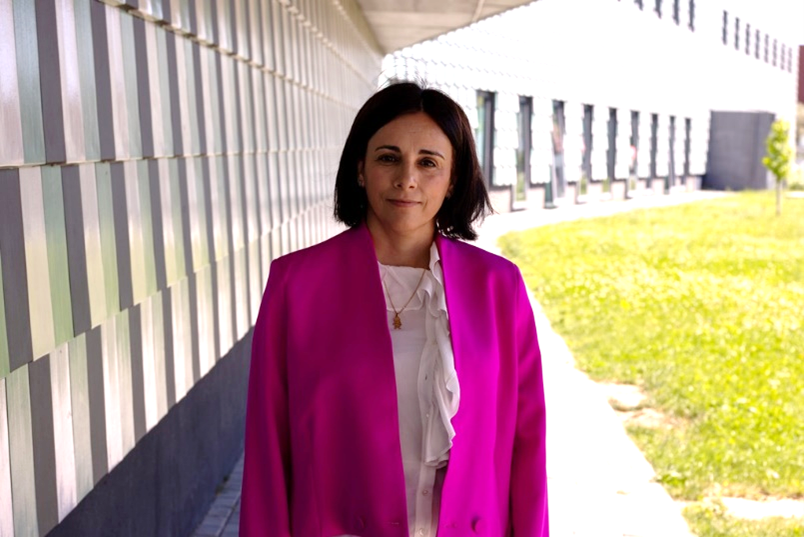
- Ime i prezime/ Name and surname: Maria de La Salete Dias Esteves
- Ustanova/ Organization: Instituto Politécnico de Bragança, Portugal
- Država/ Country: Portugal
- O predavaču/A few sentences about the speaker:
izv. prof. dr. sc. Maria de La Salete Dias Esteves izvanredna je profesorica na Instituto Politécnico de Bragança i istraživačica na UNIAG-u. Doktorirala je matematiku na Sveučilištu u Portu u Portugalu. Predaje matematiku i statistiku od 2002. godine, uglavnom na School of Communication, Administration and Tourism u Mirandeli. Njezina istraživanja usmjerena su na ponašanje turista, posebno u zaštićenim područjima i kampovima, te utjecaj društvenih medija na izbor turističke destinacije. Sudjelovala je u nekoliko interdisciplinarnih projekata financiranih od strane FCT-a i bila je članica CiTUR-a do 2024. godine. Njezino područje interesa su kvantitativne analize iz područja održivog turizma i angažmana posjetitelja.
Maria de La Salete Dias Esteves is an Adjunct Professor at the Polytechnic Institute of Bragança (IPB) and an integrated researcher at UNIAG – Applied Management Research Unit. With a background in Mathematics and a PhD from the University of Porto, she has taught Mathematics and Statistics since 2002, mainly at the School of Communication, Administration and Tourism. Her recent research focuses on tourism behaviour, particularly in protected areas and campsites, and the influence of social media on destination choice. She has participated in several FCT-funded interdisciplinary projects and was a member of CiTUR until 2024. Her work bridges quantitative analysis with practical challenges in sustainable tourism and visitor engagement.
Tema predavanja/Lecture topic:
Razumijevanje posjetitelja i njihova ponašanja u okolišu u kampu Vinhais, Portugal
Ovo istraživanje usredotočuje se na kamp Vinhais u sjevernom Portugalu. Počinje kratkim pregledom značajki kampa, prirodnog okruženja i ponude za posjetitelje. Na temelju podataka upitnika prikupljenih od korisnika kampa, istražujemo tko su posjetitelji i kako se ponašaju u pogledu ekološke odgovornosti. Istraživačka faktorska analiza identificirala je četiri dimenzije održivog ponašanja: promociju, etičko ponašanje, očuvanje resursa i higijenu. Klaster analiza otkrila je dva profila posjetitelja: proaktivne ekologe i diskretne konzervatore. Ove obrasce ponašanja ne možemo objasniti dobi i spolom posjetitelja ili učestalošću posjeta, što naglašava potrebu za širokim i uključivim strategijama održivosti unutar konteksta kampa.
Understanding Visitors and Environmental Behavior at the Vinhais Campsite, Portugal
This study focuses on the Vinhais Campsite in northern Portugal. It begins with a brief overview of the campsite’s features, natural setting, and visitor offer. Based on survey data collected from campsite users, we explore who the visitors are and how they behave regarding environmental responsibility. An exploratory factor analysis identified four dimensions of sustainable behaviour: promotion, ethical conduct, resource conservation, and hygiene. Cluster analysis revealed two visitor profiles: proactive environmentalists and discreet conservers. These patterns are not explained by age, gender, or frequency of visit, highlighting the need for broad and inclusive sustainability strategies within the campsite context.
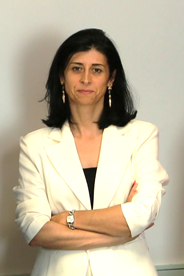
- Ime i prezime/ Name and surname: Sónia Nogueira
- Ustanova/ Organization: Instituto Politécnico de Bragança, Portugal
- Država/ Country: Portugal
- O predavaču/ A few sentences about the speaker:
izv. prof. dr. sc. Sónia P. Nogueira je dekanica na School of Communication, Administration and Tourism, Instituto Politécnico de Bragança (EsACT-IPB). Doktorirala je ekonomiju na Sveučilištu u Madridu u Španjolskoj 2012. godine. Trenutno predaje Računovodstvo javnog sektora, Javnu reviziju i menadžment, na dodiplomskom i poslijediplomskom studiju, a njezini istraživački interesi usmjereni su na računovodstvo i upravljanje javnog sektora, posebno na područje lokalne samouprave - financijsko izvještavanje. Glavna nedavna istraživanja dotiču se pitanja poput korisnosti financijskog izvještavanja u kontekstu donošenja odluka Portugalske lokalne uprave. Dobitnica je nagrade „Luiz Chaves de Almeida“ 2010., 2013. i 2014. godine za istraživanja iz područja financijskog izvještavanja. Bila je prodekanica EsACT-IPB-a od 2015. do 2021. godine. Predsjedava Pedagoškim vijećem i Tehničko-znanstvenim vijećem EsACT-IPB-a od 2021. godine.
Sónia P. Nogueira is Associate Professor at the School of Public Management, Communication and Tourism, Polytechnic Institute of Bragança (IPB). Currently, is lecturing Public Sector Accounting, Public Audit and Management, both at undergraduate and postgraduate levels, her research interests focus on Public Sector Accounting and Management, particularly on the Local Government area - Financial Reporting. The main recent investigation touches issues such as usefulness of financial reporting in the context of decision-making of Portuguese Local Administration. Serves as a member of Program Board for some Scientific Committees of International Conferences and has collaborated as a reviewer with several journals. PhD in Economics and Business - Local Government Accounting (Business and Economic Sciences School, Autonomous University of Madrid, Spain) in 2012. Has been author of national and international communications on Public Sector Accounting, specifically on local government accounting. She serves as a member of Program Board for some Scientific Committees of International Conferences and has collaborated as a reviewer with several journals. Has received the award ‘Luiz Chaves de Almeida – 2010’, attributed in 2011, for the research ‘usefulness of financial information municipal for decision-making internal users: the case of the municipality of Bragança’ and the first awards by open concourse ‘Awards Accounting Luiz Chaves de Almeida’ - 2013 with the project title ‘The Financial Reporting in the Decision-Making of Political and Municipal Managers. Empirical Evidence for Portugal’, attributed in 2014. She was the vicedean of EsACT-IPB from 2015 to 2021. Since 2021, she has been the dean of the same school. She has chaired the Pedagogical Council and the Technical-Scientific Council of the School since 2021.
Tema predavanja/Lecture topic:
Instituto Politécnico de Bragança i održiva internacionalizacija u visokom obrazovanju
U posljednjih nekoliko desetljeća međunarodna akademska suradnja preuzela je sve važniju ulogu unutar visokoškolskih ustanova (HEI). U kontekstu 21. stoljeća, ove se ustanove suočavaju s izazovom preispitivanja svoje misije kao prostora za proizvodnju i dijeljenje znanja s istinski globalnim dosegom. Akademska mobilnost, koja uključuje studente, predavače, istraživače i administratore, intenzivirala se, promičući transnacionalne mreže suradnje i jačajući razvoj međunarodne znanstvene zajednice.
Međutim, ovaj proces internacionalizacije donosi i nove odgovornosti, posebno u pogledu održivosti. Rastuća globalna mobilnost zahtijeva kritičko promišljanje o utjecaju praksi poput čestih putovanja i događaja uživo na okoliš. Visokoškolske ustanove stoga počinju uključivati konkretne probleme održivosti u svoje programe i politike, nastojeći uravnotežiti potrebu za međunarodnom suradnjom sa svjesnijim i ekološki odgovornijim praksama. U ovom radu bit će prikazan slučaj Politehničkog sveučilišta Bragança (IPB) kao primjer ustanove koja je snažno uložila u internacionalizaciju a istovremeno zadržala čvrstu predanost održivosti i društvenoj odgovornosti.
The Bragança Polytechnic University and Sustainable Internationalisation in Higher Education
In recent decades, international academic cooperation has taken on an increasingly important role within higher education institutions (HEIs). In the context of the 21st century, these institutions face the challenge of rethinking their mission as spaces for the production and sharing of knowledge with truly global reach. Academic mobility, involving students, lecturers, researchers, and administrators, has intensified, promoting transnational collaboration networks and strengthening the development of an international scientific community.
However, this process of internationalisation also brings new responsibilities, particularly concerning sustainability. The growing global mobility demands a critical reflection on the environmental impact of practices such as frequent travel and in-person events. HEIs are thus beginning to incorporate concrete sustainability concerns into their programmes and policies, striving to balance the need for international cooperation with more conscious and environmentally responsible practices. In this study, the case of the Bragança Polytechnic University (IPB) will be shared, as an example of an institution that has strongly invested in internationalisation while maintaining a firm commitment to sustainability and social responsibility.
 (002).jpg)
- Ime i prezime/Name and surname: doc.dr.sc. Josipa Cvelić Bonifačić
- Ustanova/Organization: Fakultet za menadžment u turizmu i ugostiteljstvu
- Država/Country: Hrvatska
- O predavaču/ A few sentences about the speaker:
Doc. dr. sc. Josipa Cvelić Bonifačić docentica je na Fakultetu za menadžment u turizmu i ugostiteljstvu u Opatiji (FTHM), gdje već više od osam godina vodi jedinstveni program cjeloživotnog obrazovanja „Menadžment kamping resorta“. Predavala je i na Fakultetu za komercijalne i poslovne vede u Celju te Sveučilištu Vern, a redovito održava predavanja i radionice o kamping turizmu u srednjim školama i fakultetima. Autorica je priručnika iz menadžmenta kampova te brojnih znanstvenih i stručnih radova na temu kamping turizma. Sudjelovala je na brojnim domaćim i međunarodnim konferencijama i projektima, uključujući projekt „Benchmarking kampova“ na FTHM-u. Osnivačica je i prvog združenog europskog studija „Master of Sustainable Outdoor Hospitality Management“, koji zajednički izvode sveučilišta iz Brede (Nizozemska), Girone (Španjolska) i FTHM (Hrvatska). Svoje dugogodišnje praktično iskustvo stjecala je i u najvećoj hrvatskoj turističkoj kompaniji Valamar, gdje je radila kao direktorica marketinga, prodaje, revenue managementa i razvoja kampova, te kasnije kao voditeljica kvalitete za 15 kampova Valamar Riviere d.d. Zahvaljujući svom iznimnom doprinosu razvoju kamping turizma, dobitnica je više priznanja, među kojima se ističu: Nagrada za životno djelo slovenskog kluba Avtocampi.si, Plaketa F.I.C.C.-a za doprinos razvoju kampinga i karavaninga u svijetu (2014.), „Hall of Fame“ priznanje ADAC-a, najvećeg njemačkog automobilskog kluba, za izuzetan doprinos razvoju kamping turizma. Danas se smatra jednom od vodećih europskih stručnjakinja za razvoj kamping turizma, s bogatim iskustvom koje povezuje znanstveni, nastavnički i praktični rad.
Josipa Cvelić Bonifačić, PhD is an assistant professor at the Faculty of Tourism and Hospitality Management in Opatija (FTHM), where she has been leading the unique lifelong learning program "Camping Resort Management" for more than eight years. She has also worked at the Faculty of Commercial and Business Sciences in Celje and the University of Vern, and regularly holds lectures and workshops on camping tourism in High schools and Colleges. She is the author of a manual on campsite management and numerous scientific and professional papers on the topic of camping tourism. She has participated in numerous domestic and international conferences and projects, including the project “Benchmarking Camps” at FTHM. She is also the founder of the first joint European study program “Master of Sustainable Outdoor Hospitality Management”, which is jointly run by the universities of Breda (Netherlands), Girona (Spain) and FTHM (Croatia). She also gained many years of practical experience at the largest Croatian tourism company, Valamar, where she worked as the director of marketing, sales, revenue management and camp development, and later as the quality manager for 15 camps of Valamar Riviera. Thanks to her exceptional contribution to the development of camping tourism, she has received several awards, including: Lifetime Achievement Award from the Slovenian club Avtocampi.si, F.I.C.C. Plaque for contribution to the development of camping and caravanning in the world (2014) and “Hall of Fame” award from ADAC, the largest German automobile club, for exceptional contribution to the development of camping tourism. Today, she is considered one of the leading European experts in the development of camping tourism, with a rich experience that combines scientific, teaching and practical work.
Tema predavanja/Lecture topic:
Profesionalizacija obrazovanja u području “Outdoor Hospitality”
Jedinstveni združeni diplomski stručni studij: “Master of Sustainable Outdoor Hospitality Management” se izvodi u suradnji triju sveučilišta: Breda University of Applied Sciences (Nizozemska), Fakultet za menadžment u turizmu i ugostiteljstvu Opatija (Hrvatska) i Sveučilište u Gironi (Španjolska). Studij se izvodi na engleskom jeziku kroz četiri semestra u tri države te uključuje teorijsku i praktičnu nastavu u stvarnim poslovnim okruženjima. Studij nosi 120 ECTS bodova.
Studij ima 4 semestra i to:1. semester održava se u Bredi, Nizozemska: Kontekst turizma i kamping industrije, 2. semestar održava se na FTHM, Ika, Hrvatska: Poslovno upravljanje i operacije, 3. semester održava se u Gironi , Španjolska: Strategijsko planiranje i kritička analiza, 4. semester studenti provode na stručnoj praksi na odabranim lokacijama diljem Europe i svijeta: Transformacijski projekt (18 ECTS) + Diplomski rad (12 ECTS). Po završetku studija studenti stječu 3 diplome: Master of Economics – FTHM, Hrvatska, Master of Arts – Breda, Nizozemska, Master of Science – Girona. U školskoj godini 2024/2025 upisana je prva generacija studenata koji su diplomirali ove godine u travnju na Sveučilištu u Gironi. U ovom trenutku traju upisi 3. generacije studenata.
Professionalization of Education in Outdoor Hospitality
The unique joint graduate programme Master of Sustainable Outdoor Hospitality Management is offered in collaboration at three universities: Breda University of Applied Sciences (Netherlands), the Faculty of Tourism and Hospitality Management in Opatija (Croatia) and the University of Girona (Spain). The programme is conducted in English over four semesters in three different countries and includes both theoretical and practical classes in real business environments. The programme carries a total of 120 ECTS points. The structure of the programme is as follows: 1st semester held in Breda, Netherlands, focusing on the context of the tourism and camping industry; 2nd semester conducted at the Faculty of Tourism and Hospitality Management in Croatia, covering business management and operations; 3rd semester held in Girona, Spain, emphasising strategic planning and critical analysis; in the 4th semester students complete professional practice in selected locations across Europe and the world, which includes a transformation project (18 ECTS) and a diploma thesis (12 ECTS). Upon completion of the programme the students earn three degrees: Master of Economics from FTHM, Croatia, Master of Arts from Breda, Netherlands and Master of Science from Girona, Spain. The first generation of students graduated in April of this year from the University of Girona, and the enrolment procedure for the 2024/2025 academic year is currently ongoing for the third generation of students.
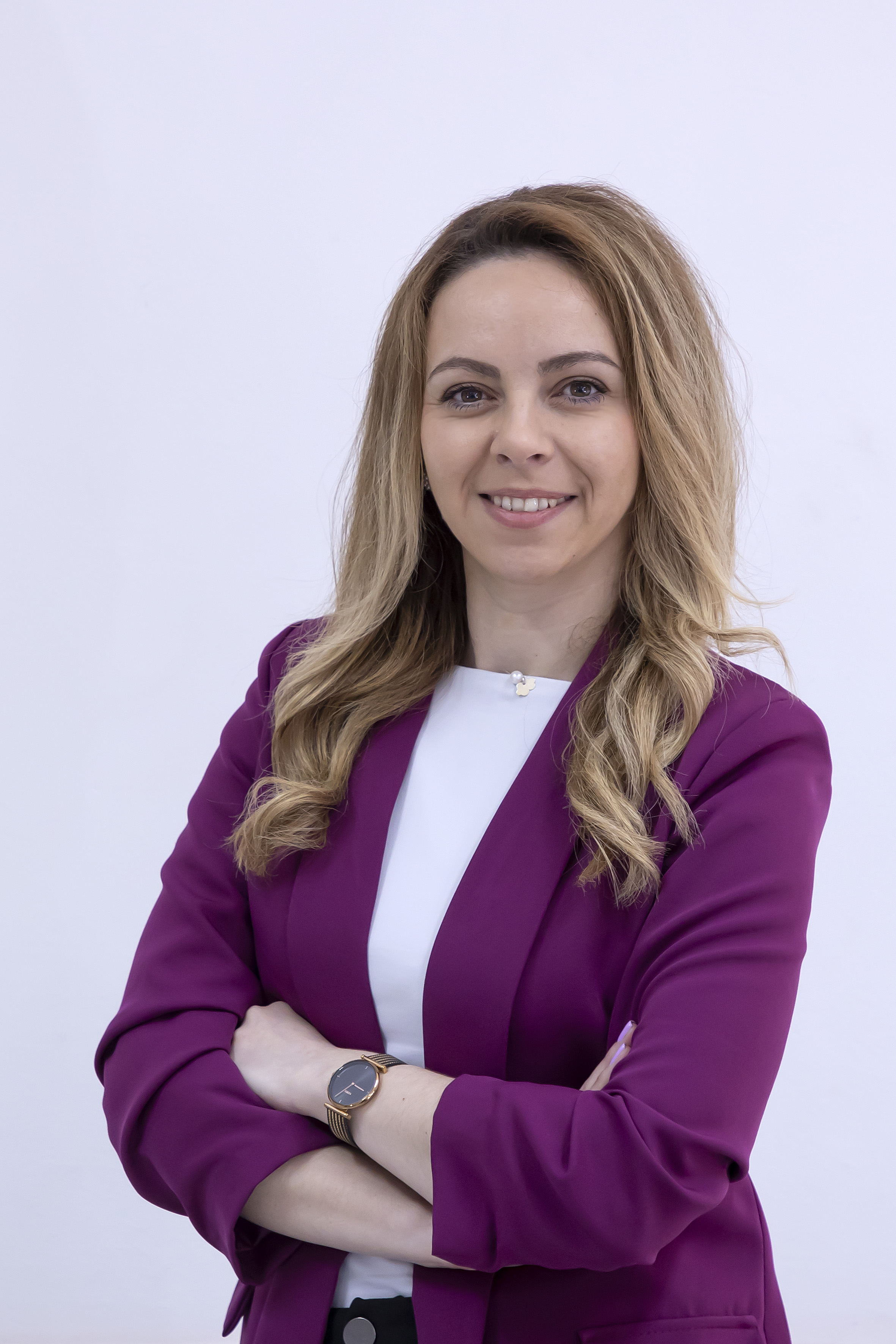
- Ime i prezime/ Name and surname: Marina Magdić
- Ustanova/ Organization: Javna ustanova Baraćeve špilje
- Država/ Country: Hrvatska
- O predavaču/ A few sentences about the speaker:
Marina Magdić, magistra ekonomije, zaposlena je u Javnoj ustanovi Baraćeve špilje, gdje od 2015. sudjeluje u razvoju turističke ponude i promociji, a posljednje dvije godine vodi sustav posjećivanja. Ima više od 12 godina iskustva u javnom sektoru, s fokusom na prodaju, financije i upravljanje projektima. Posjeduje brojne certifikate iz područja projektnog menadžmenta, javne nabave, edukacije i interpretacije zaštićenih područja. Ističe se predavanjem na međunarodnim sajmu u New York Travel & Adventure Show-u te predavanjem na 4th Plenary Meeting u Zagrebu (2023.), gdje je održala predavanje na temu marketinških aktivnosti posjetiteljskog centra Speleon.
Marina Magdić, Master of Economics, is currently employed at the Public Institution Baraćeve špilje. Since 2015, she has contributed to the development of the tourist offer and promotion, and for the past two years, she has been managing the visitor system. With over 12 years of experience in the public sector, her expertise lies in sales, finance, and project management. Marina holds several certifications in project management, public procurement, education, and the interpretation of protected areas. She has notably presented at the International Travel & Adventure Show in New York and had a lecture at the 4th Plenary Meeting in Zagreb (2023), where she discussed the marketing activities of the Speleon visitor center.
Tema predavanja/Lecture topic:
Izazovi upravljanja turizmom u zaštićenom području
Rad se fokusira na izazove upravljanja posjećivanjem osjetljivih prirodnih područja, s naglaskom na Gornju Baraćevu špilju, gdje su posjeti ograničeni radi očuvanja mikroklime i špiljske faune. Predstavit će se razvoj alternativnih sadržaja za posjetitelje, među kojima se posebno ističe posjetiteljski centar Speleon, kao inovativan odgovor na potrebu balansiranja zaštite prirode i održivog turizma.
Challenges in Managing Tourism in Protected Areas
This study explores the challenges associated with managing visitor access to sensitive natural areas, focusing specifically on Gornja Baraćeva Špilja. Due to the need to preserve the microclimate and cave fauna, visitor numbers are limited. The presentation will also introduce the development of alternative visitor facilities, such as the Speleon Visitor Center, which serves as an innovative solution to balance nature conservation with sustainable tourism.
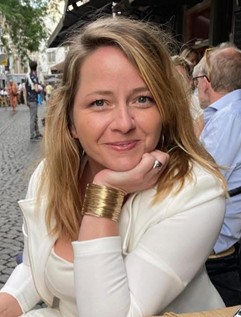
- Ime i prezime/ Name and surname: Mirjana Mataković
- Ustanova/ Organization: Kamp Slapić, Primavera Plitvice
- Država/ Country: Hrvatska
- O predavaču/ A few sentences about the speaker:
Mirjana Mataković, magistra ekonomije s preko 20 godina iskustva u kamping turizmu, vlasnica je Kampa Slapić i direktorica Camping Primavera Plitvice. Završila je stručni diplomski studij Poslovno upravljanje na Veleučilištu u Karlovcu.
Mirjana Mataković is a Master of Economics with more than 20 years of experience in camping tourism. She is the owner of Camp Slapić and the director of Camping Primavera Plitvice. Mirjana completed her professional graduate studies in Business Administration at the Karlovac University of Applied Sciences.
Tema predavanja/Lecture topic:
Investicije kod malih obiteljskih pothvata na primjeru Kampa Slapić
Što kada vlasnik mora istovremeno biti marketinški stručnjak, prodavatelj, računovođa i voditelj ljudskih resursa?
Kako planirati kratkoročne/dugoročne investicije obzirom na turbulentnosti tržišta?
Kako provoditi cjeloživotno obrazovanje / cjeloživotne investicije?
Investments in small family businesses: the example of Kamp Slapić
What if the owner has to manage marketing, sales, accounting, and human resources? How can short-term and long-term investments be planned amid market turbulence? The importance of lifelong learning and lifelong investments.
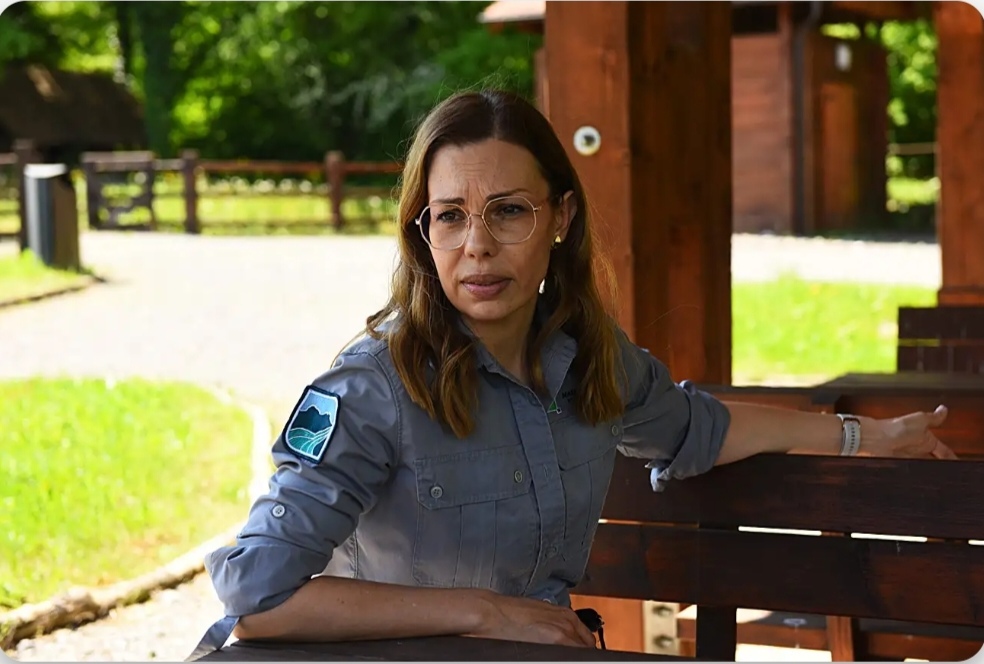
- Ime i prezime/ Name and surname: Martina Pavlović Sušilović
- Ustanova/ Organization: Javna ustanova NaturaViva
- Država/ Country: Hrvatska
- O predavaču/ A few sentences about the speaker:
Martina Pavlović Sušilović je mag. ing. agroekologije, a u Javnoj ustanovi NaturaViva je zaposlena od 2009. godine gdje trenutno radi na mjestu voditeljice stručne službe. Kroz rad u ustanovi sudjelovala je na brojnim projektima zaštite prirode. Osim stručnog rada bavi se i edukacijom iz područja ekologije i povezenih tema.
Martina Pavlović Sušilović holds a Master’s degree in Agroecology and has been employed by the NaturaViva Public Institution since 2009, where she currently serves as the head of the professional service. Throughout her tenure at the institution, she has participated in numerous nature protection projects. In addition to her professional work, Martina is actively involved in educating others on ecology and related topics.
Tema predavanja/ Lecture topic:
Izazovi u upravljanju zaštićenim područjem rijeke Mrežnice
Područje rijeke Mrežnice zaštićeno je 2024. godine, i to u dvije kategorije: kao Spomenik prirode i kao Značajni krajobraz. Spomenik prirode „Mrežnica-Tounjčica” zauzima područje od 671,67 ha, a obuhvaća gornji tok rijeke Mrežnice i donji tok rijeke Tounjčice na područjima gradova Ogulina i Slunja te općina Tounj i Barilović. Značajni krajobraz Mrežnica obuhvaća područje donjeg toka rijeke Mrežnice na području gradova Duge Rese i Ogulina te općina Barilović i Generalski Stol, ukupne površine 1.401,79 ha. Temeljnu prirodnu vrijednost zaštićenih područja predstavljaju očuvani krški vodotoci rijeke Mrežnice i Tounjčice. Ono što Mrežnicu izdvaja od većine ostalih krških rijeka u Hrvatskoj je njezinih više od 90 sedrenih slapova u različitim fazama formiranja koji presijecaju rijeku i tvore ujezerene dijelove toka. Budući da se ovaj prostor koristio i prije zaštite, na nekim je dijelovima razvijen turizam i posjećivanje, festivali, kampovi te razne druge gospodarske djelatnosti, stoga je uglavnom pravi izazov s dionicima pronaći zajednička rješenja temeljena na zaštiti prirode.
Challenges in Managing the Mrežnica River Protected Area
The Mrežnica River area is a protected area from 2024 in two categories: Natural Monument and Significant Landscape. The Mrežnica-Tounjčica Natural Monument spans on 671.67 hectares and encompasses the upper reaches of the Mrežnica River and the lower reaches of the Tounjčica River, located within the cities of Ogulin and Slunj, as well as the municipalities of Tounj and Barilović. Meanwhile, the Significant Landscape of Mrežnica covers the lower reaches of the Mrežnica River, including areas in the cities of Duga Resa and Ogulin, along with the municipalities of Barilović and Generalski Stol, totalling 1,401.79 hectares. The primary natural value of these protected areas lies in the well-preserved karst watercourses of Mrežnica and Tounjčica. What distinguishes Mrežnica from most other karst rivers in Croatia is the presence of over 90 travertine waterfalls at various stages of formation, which create lake-like sections along the river's course. Since the area was utilised even before it obtained its protection status, tourism, festivals, camps, and other economic activities have emerged in certain parts. As a result, finding collaborative solutions that balance nature conservation with the interests of stakeholders has become a significant challenge.
- Ime i prezime/ Name and surname: Martina Malec Perić
- Ustanova/ Organization: Maistra d.d.
- Država/ Country: Hrvatska
- O predavaču/ A few sentences about the speaker:
Martina Malec Perić je rođena u Puli gdje je završila Fakultet ekonomije i turizma, smjer: turizam. Po završetku školovanja radi u turizmu, a zadnjih 7 godina u Maistri gdje je započela put kao pripravnica, pomoćnica direktora te na koncu direktorica u diviziji kampova. Kao najvrijednije iskustvo na direktorskoj poziciji u Maistrinom kampu joj je sudjelovanje u investicijskom ciklusu kampa te razvoju istog, uspostavljanje insourcinga u svim odjelima kampa te na koncu podizanje kampa sa 2* na 4*.
Martina Malec Perić was born in Pula, where she graduated from the Faculty of Economics and Tourism, specializing in tourism. After completing her studies, she began her career in the tourism sector, spending the last seven years with Maistra d.d.. She started as an intern and progressed to assistant director, eventually becoming the director of the camp division. During her tenure as director, she gained valuable experience by participating in the camp's investment cycle and development. Additionally, she established insourcing in all camp departments and successfully elevated the camp's rating from 2 stars to 4 stars.
Tema predavanja/ Lecture topic:
Vodene zone Kampa Amarin
U prezentaciji će se posjetitelji provesti kroz vodene zone Kampa Amarin koje uključuju zatvoreni i grijani bazen kao jedan od važnih segmenata za prodaju kampa tijekom cijele godine te ostale sadržaje unutar zgrade zatvorenog bazena.
Water areas in Camp Amarin
In this presentation, we will explore the water areas of Camp Amarin, highlighting the indoor heated pool as a key feature that makes the camp appealing throughout the year. We will also discuss other facilities located within the indoor pool building.
- Ime i prezime/ Name and surname: Adriano Palman
- Ustanova/ Organization: Kamping udruženje Hrvatske
- Država/ Country: Hrvatska
- O predavaču/ A few sentences about the speaker:
Direktor Kamping udruženja Hrvatske s više od dva desetljeća iskustva u turizmu i destinacijskom menadžmentu. Završio je MBA studij međunarodnog poslovanja te diplomirao ekonomiju i turizam. Aktivno surađuje s domaćim i europskim institucijama na projektima vezanima uz održivi razvoj, digitalnu transformaciju i promociju hrvatskog kampinga. Pod njegovim vodstvom Kamping udruženje Hrvatske provodi inicijative usmjerene na podizanje kvalitete, edukaciju i jačanje konkurentnosti kamping sektora.
Tema predavanja/ Lecture topic:
Kamping turizam u Hrvatskoj
Kamping turizam jedan je od ključnih segmenata hrvatske turističke industrije, sa skoro četvrtinom ostvarenih noćenja i stalnim rastom kvalitete ponude. Hrvatska je, s više od 800 kampova i snažno razvijenom obalnom infrastrukturom, prepoznata kao jedno od najkonkurentnijih kamping odredišta u Europi. Ovaj rad daje pregled aktualnog stanja kamping turizma u Hrvatskoj, s naglaskom na strukturu smještaja, profil gostiju, sezonalnost, investicijske trendove i izazove u prostornom planiranju. Posebno se ističe rast popularnosti glampinga i mobilnih kućica, povećana potražnja za kampovima više kategorije te važnost digitalne transformacije u podizanju korisničkog iskustva. Predstavit će se uloga Kamping udruženja Hrvatske u praćenju trendova, promociji i povezivanju sektora, kao i primjeri dobre prakse iz domaćih kampova. Cilj je dati realan i argumentiran prikaz kuda ide kamping turizam u Hrvatskoj i koje su ključne točke za njegovo daljnje jačanje na europskoj karti turizma.
Camping Tourism in Croatia
Camping tourism is one of the key segments of the Croatian tourism industry, accounting for almost a quarter of overnight stays and constant increase in the quality of the offer. With over 800 campsites and a strongly developed coastal infrastructure, Croatia is recognised as one of the most competitive camping destinations in Europe. This paper provides an overview of the current state of camping tourism in Croatia, with an emphasis on accommodation structure, guest profile, seasonality, investment trends and challenges in spatial planning. The growing popularity of glamping and mobile homes, the increased demand for higher category campsites and the importance of digital transformation in improving the user experience are particularly highlighted. The role of the Croatian Camping Union in monitoring trends, promoting and connecting the sector will be presented, as well as examples of good practice from domestic campsites. The aim is to provide a realistic and well-argued overview of where camping tourism in Croatia is heading and what are the key points for its further strengthening on the European tourism map.
- Ime i prezime/ Name and surname: Meri Živković
- Ustanova/ Organization: Kamping udruženje Hrvatske
- Država/ Country: Hrvatska
- O predavaču/ A few sentences about the speaker:
Magistra ekonomije, specijalizirana za management i poduzetništvo, dodatno se usavršavala u području digitalnog marketinga i kvalitete usluge. Sudjelovala je u nacionalnim i europskim projektima te inovacijskim inkubatorima koji potiču digitalnu transformaciju i međunarodnu suradnju. Tijekom više od petnaest godina rada u turizmu iskustvo je stjecala u odjelu kamp prodaje Valamar Riviere, a danas, kao voditeljica projekata u Kamping udruženju Hrvatske, aktivno doprinosi promociji i razvoju kamping sektora.
Tema predavanja/ Lecture topic:
Zelena kamping revolucija: poslovanje u skladu s prirodom
Kamping turizam oduvijek je bio blisko povezan s prirodom, ali suvremeni trendovi i sve veći ekološki izazovi stavljaju pred kampove novu odgovornost – da ne budu samo korisnici prostora, već i aktivni čuvari okoliša. Ovaj se rad bavi temom „zelene tranzicije” kamping sektora u Hrvatskoj – kroz konkretne prakse, inicijative i alate koje kampovi koriste kako bi poslovali u skladu s principima održivosti. Od korištenja obnovljivih izvora energije, učinkovitog upravljanja vodom i otpadom, do edukacije osoblja i gostiju te certificiranja ekoloških standarda – kampovi sve češće preuzimaju vodeću ulogu u stvaranju održivih turističkih destinacija. Rad prikazuje i ulogu Kamping udruženja Hrvatske u osnaživanju sektora kroz edukativne projekte, poticanje međusobne razmjene znanja te povezivanje s europskim inicijativama i fondovima. Cilj je prikazati kako „zelena kamping revolucija” nije marketinški slogan, već stvaran smjer razvoja koji spaja prirodu, tehnologiju i odgovorno poslovanje.
Green Camping Revolution: Business in Line with Nature
Camping tourism has always been closely connected to nature, but modern trends and increasing environmental challenges place a new responsibility on campsites – to be not only users of space, but also active guardians of the environment. This paper deals with the topic of the “green transition” of the camping sector in Croatia – through concrete practices, initiatives and tools that campsites use to operate in accordance with the principles of sustainability. From the use of renewable energy sources, efficient water and waste management, to the education of staff and guests and the certification of environmental standards – campsites are increasingly taking a leading role in creating sustainable tourist destinations. The paper also shows the role of the Croatian Camping Union in strengthening the sector through educational projects, encouraging mutual exchange of knowledge and connecting with European initiatives and funds. The aim is to show that the “green camping revolution” is not a marketing slogan, but a real direction of development that combines nature, technology and responsible business.
 Pristupačnost
Pristupačnost
